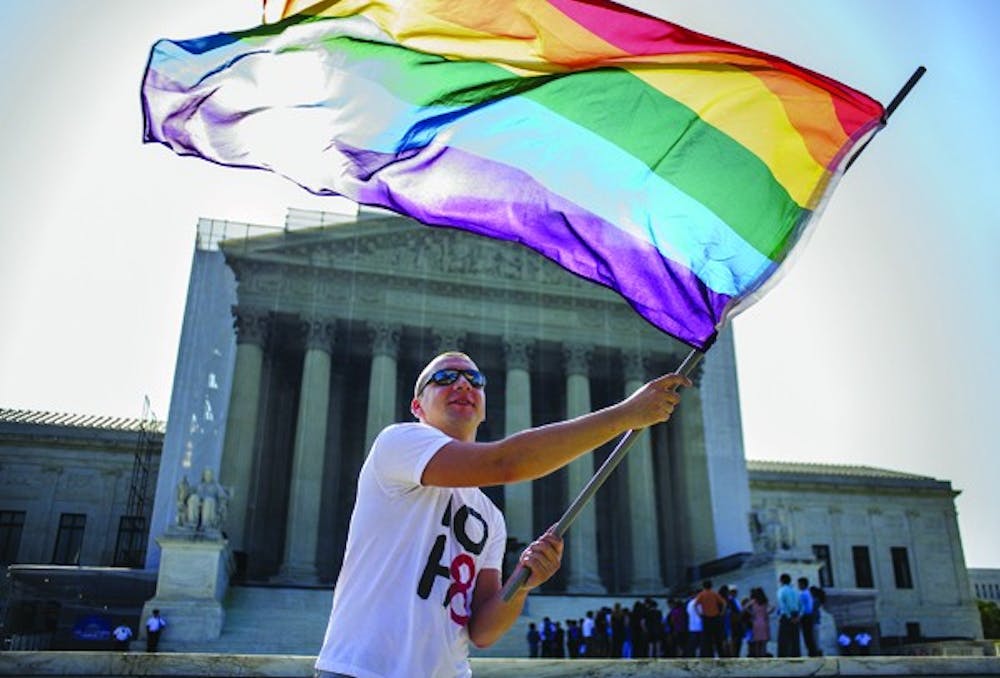Landmark marriage equality case set to be heard in federal court

Editor’s note: This story has been adjusted to correct an inaccuracy.
Feb. 25 marks the start of a monumental court case that might change the future of marriage in Michigan and possibly the United States.
Judge Bernard Friedman of the United States District Court for the Eastern District of Michigan will hear arguments in DeBoer v. Snyder regarding adoption and marriage equality in Michigan.
No matter which way the ruling goes, history will be made.
“The most important thing about this case is that it’s one of the biggest civil rights issues of our time," said Eliza Wilton, Marysville senior and professional enrichment committee chairwoman for Phi Alpha Delta pre-law fraternity. "It will be interesting to see not only how it will affect the state, but also national legislation."
Jayne Rowse and April DeBoer are suing Gov. Rick Snyder and Attorney General Bill Schuette on the grounds of constitutional rights under the equal protection clause in the 14th amendment.
Rowse and DeBoer are a same-sex couple with three children. Under Michigan law, they cannot both be legal guardians of their children because they are not married. However, Michigan law also bans same-sex marriage.
The couple hopes to change these laws.
“Hopefully the outcome will be positive. I’m not sure Michigan is quite ready for this step but my fingers are crossed,” said Kai Niezgoda, a Royal Oak sophomore and Transcend president. “If the case is overturned, it could set Michigan back as far as gay rights. Usually when a progressive act fails, there is a push back from conservatives in the opposite direction.”
Samantha Wilton, Spectrum president and Lake City sophomore, is concerned with the issue of adoption.
“As far as adoption, if the concern is for the welfare of the children, every parent should be allowed parental rights in case something happens to their child," she said. "If they don’t have legal rights, it can tear families apart."
Seventeen states have already legalized same-sex marriage and the effects are being felt around the nation.
“Both have claims that are legally rooted and substantiated by the law or else the case wouldn’t be heard. It will be very interesting to see how this case goes and how the judge will interpret the law, because that’s the biggest factor in this case,” Wilton said. “No matter what side loses, I think it will be appealed to the Supreme Court, which potentially could change the national landscape of gay marriage.”
Multiple factors go into the length of the case before there is an official ruling on DeBoer v. Snyder.
“I don’t know if it will be a long, drawn out bloody battle, but the judicial process is notoriously slow," Wilton said. "I think this case will get the time and recognition that it deserves. Also, if it is appealed to the Supreme Court, that will add length."
Whatever the outcome, the LGBT community will feel its impact.
“If this case fails, then what it will say to people of our age is that in the future it is going to be an uphill battle to have families,” Niezgoda said. “If it passes, it will give people a lot of hope and positivity looking toward the future to have families and be legally bonded to their children.”



